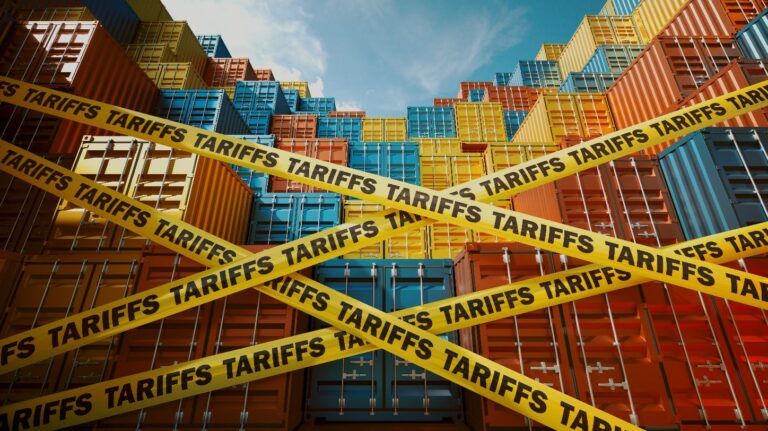UK manufacturing and logistics SMEs have reported sharp hits to investment plans, sales pipelines and supply-chain risk following the latest round of US trade tariffs, according to new research.
The July 2025 survey of 250 UK finance decision-makers across manufacturing and distribution/logistics from Sage partner CPiO found that 68% say tariff changes have had a “high” impact on short- and medium-term investment plans, while 56% report up to a 40% reduction in their sales pipeline. Some 70% say supply-chain risks have increased since the tariffs were introduced.
The findings are published in CPiO’s report, International Tariff Turmoil: How global trade policy is rewriting UK SME finance strategy. The study canvassed firms with annual turnover of £1m or more and explores how finance leaders are adapting their investment, working-capital and resilience strategies.
Andrew Watkinson, managing director at CPiO, said: “This research shows that the changing trade tariffs are more than a policy issue – they’re directly stalling sales pipelines, straining supply chains and paralysing decision-making for UK SMEs.”
He added that the trend would be unwelcome for policymakers given recent signs of slower UK growth.
Beyond external pressures, CPiO highlights internal constraints inside finance teams. Nearly half of respondents (46%) say they are struggling to model future financial scenarios and cite leadership indecision as a barrier to responding to tariffs; 44% point to finance-team skills gaps.
Almost half (48%) report they are now more aware of weaknesses in their ERP or finance systems, yet just 18% are prioritising investment in new core platforms to mitigate future tariff instability.
Planned actions are skewed towards supplier diversification/reshoring (43%), strengthening finance skills and training (43%), and stockpiling or expanding domestic warehousing (38%).
Watkinson said: “If the finance team is unable to deliver accurate, trusted financial models, then they will struggle to navigate the current business climate.
“While many businesses are planning for resilience, outdated systems and data gaps mean too few are taking decisive action.”
Policy expectations also feature in the report: 48% of respondents want the UK government to pursue new free-trade agreements to open markets; 45% support prioritising negotiation and diplomacy over retaliatory measures; and 44% call for clearer, timelier guidance aligned to changing tariff schedules.
The research follows a period of heightened trade uncertainty and shifting global sourcing strategies.
CPiO argues that upgrading forecasting capability, closing data gaps and improving cross-functional collaboration between finance, supply chain and sales will be critical to sustaining UK SME competitiveness as tariff regimes evolve.







